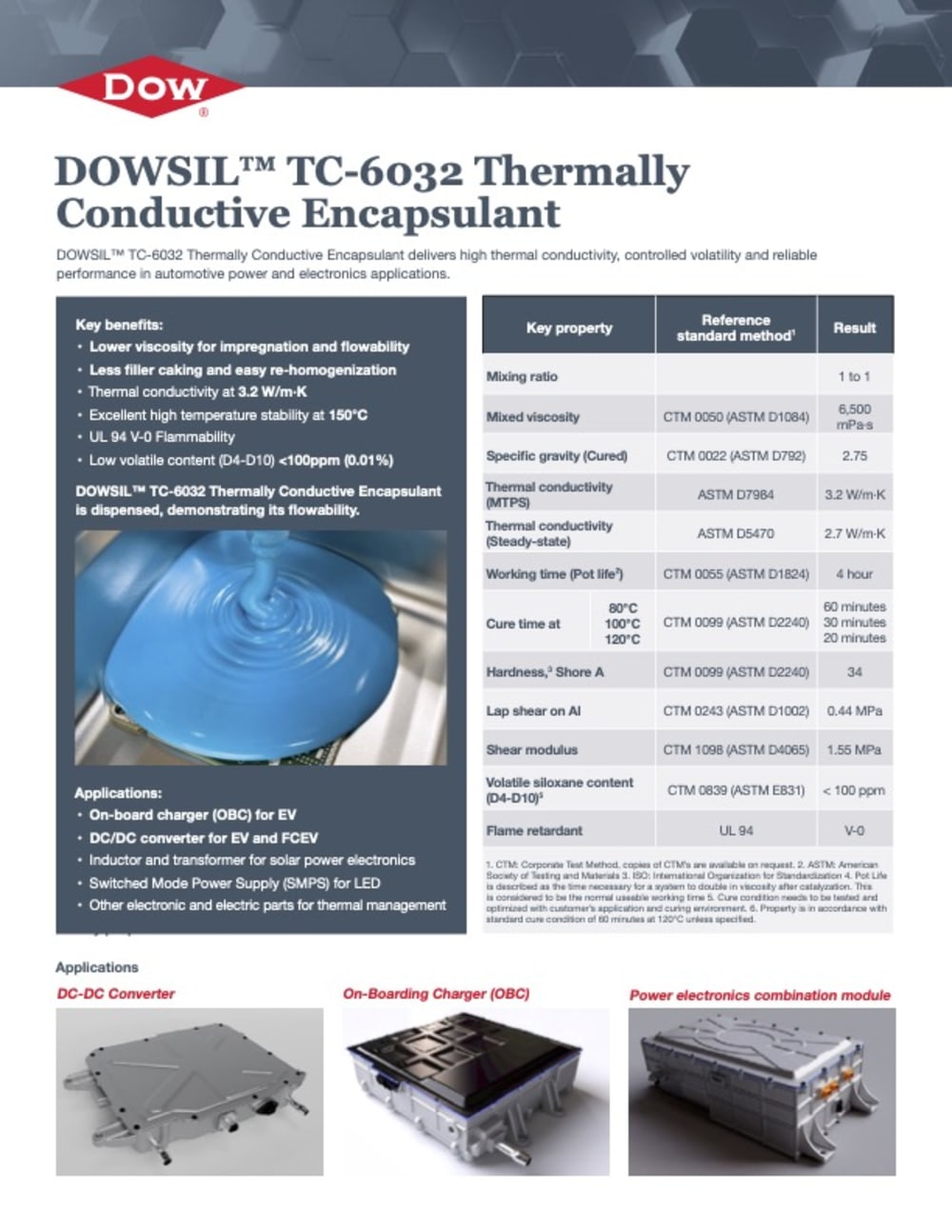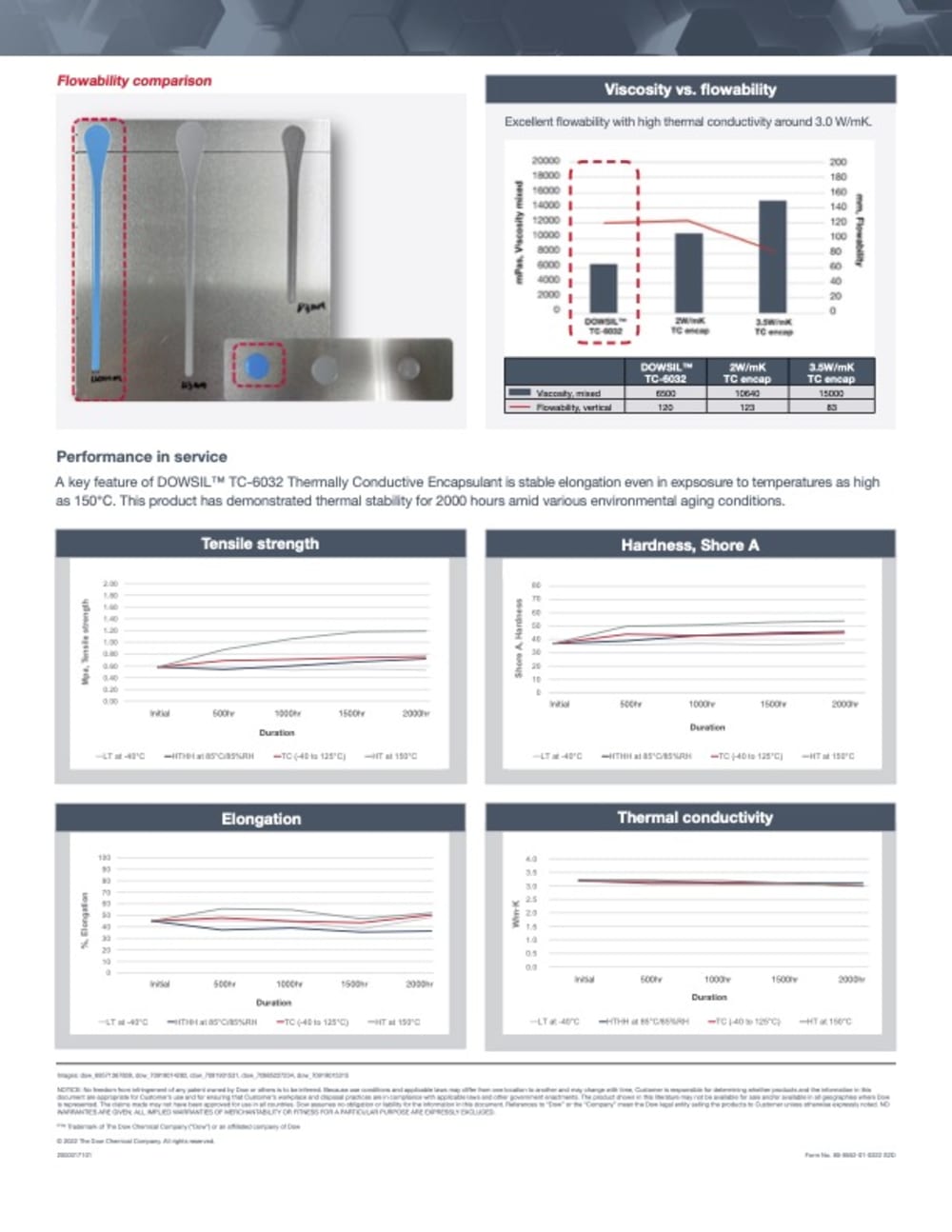DOWSIL™ TC-6032 Thermally conductive encapsulant affects manufacturing key parts of FCEV and BEV and acceleration of new clean energy era by providing excellent process-ability and productivity improvement with higher thermal conductivity around 3.0 W/m·K and lower viscosity around 6,500 mPa·s, which is almost the lowest in similar product groups thanks to DOW’s filler combination and treating technology. DOWSIL™ TC-6032 has less filler caking and is easy to re-homogenize. The use of this product contributes to sustainability with solvent-less and low siloxane volatile contents below 100 ppm for much safer against siloxane contamination for some electric components such as electrical motors and open relay, potentiometer in key parts. Very easy remixing ability can help the customer to use material at most and reduce the waste at least. It also makes electric efficiency with lower specific gravity of 2.75 compared to 3.0 in average for same thermal conductivity from similar groups, which reduced weight up to 10%. DOWSIL™ TC-6032 also passes the UL 94 V-0 Flammability test and excellent high temperature stability (up to 150C). Finally, not only TC-6032 will help thermal management of key components in FCEV and BEV, but also this will accelerate process-ability and productivity by giving less production time for filling in its core and coil components.
Since the recent qualification and adoption of DOWSIL™ TC-6032 Thermally conductive encapsulant for FCEV truck, there will be more adoption for high thermal management solutions as both FCEV and BEV are increasing. In short term, OEMs are speeding up for charging speed with less charging time with high voltage system from 400V to 800V. With this trend, power electronics, especially, on-board charger (OBC) requires high power from 3.3 to 11kW and even more. Thus, charging time for 80% from 20% will decrease from 8 hours to 30 minutes when using high power electronics. High thermal management through TC-6032 will increase energy efficiency for transforming voltage and reduce charging time of passengers as well. As xEV including BEV, PHEV and FCEV etc will take 30% possession of global vehicle’s sales in total by 2030, it significantly impacts energy consumption considering annual automotive sales around 80 to 100 million and saves free time of each individual with xEV. TC-6032 will also advance thermal management in non-EV applications, such as inductors and transformers for solar power electronics and switch mode power supplies for LEDs.
Video
Like this entry?
-
About the Entrant
- Name:Samdeok Gwon
- Type of entry:teamTeam members:
- Jinho Kim
- Yeong-gwang Kim
- Jinhee Lee
- Do-gyun Kim
- Seungyun Kim
- Tae-seung Lee
- Youngno Lee
- Byeong keun Park
- Software used for this entry:Not applicable
- Patent status:none





